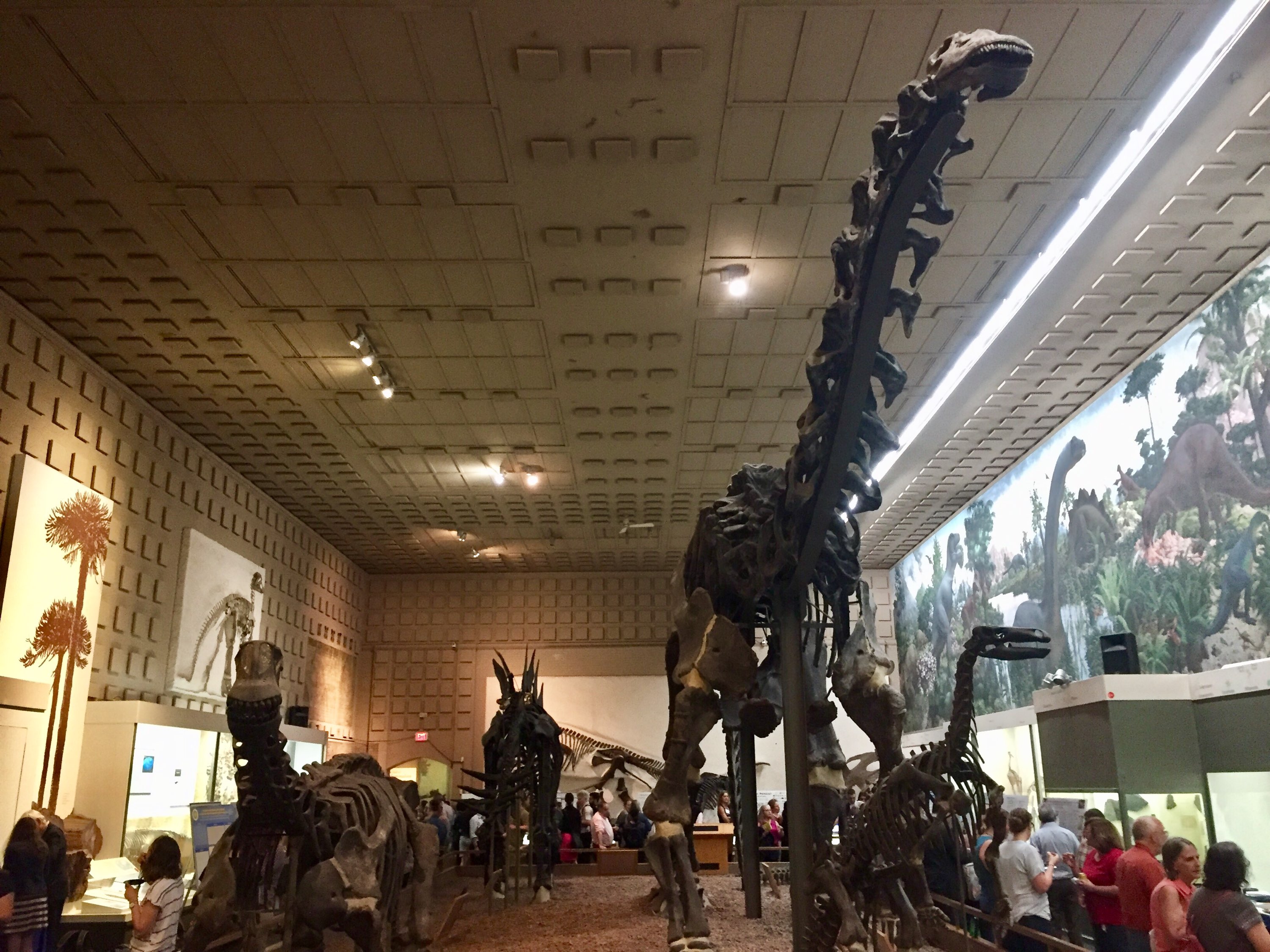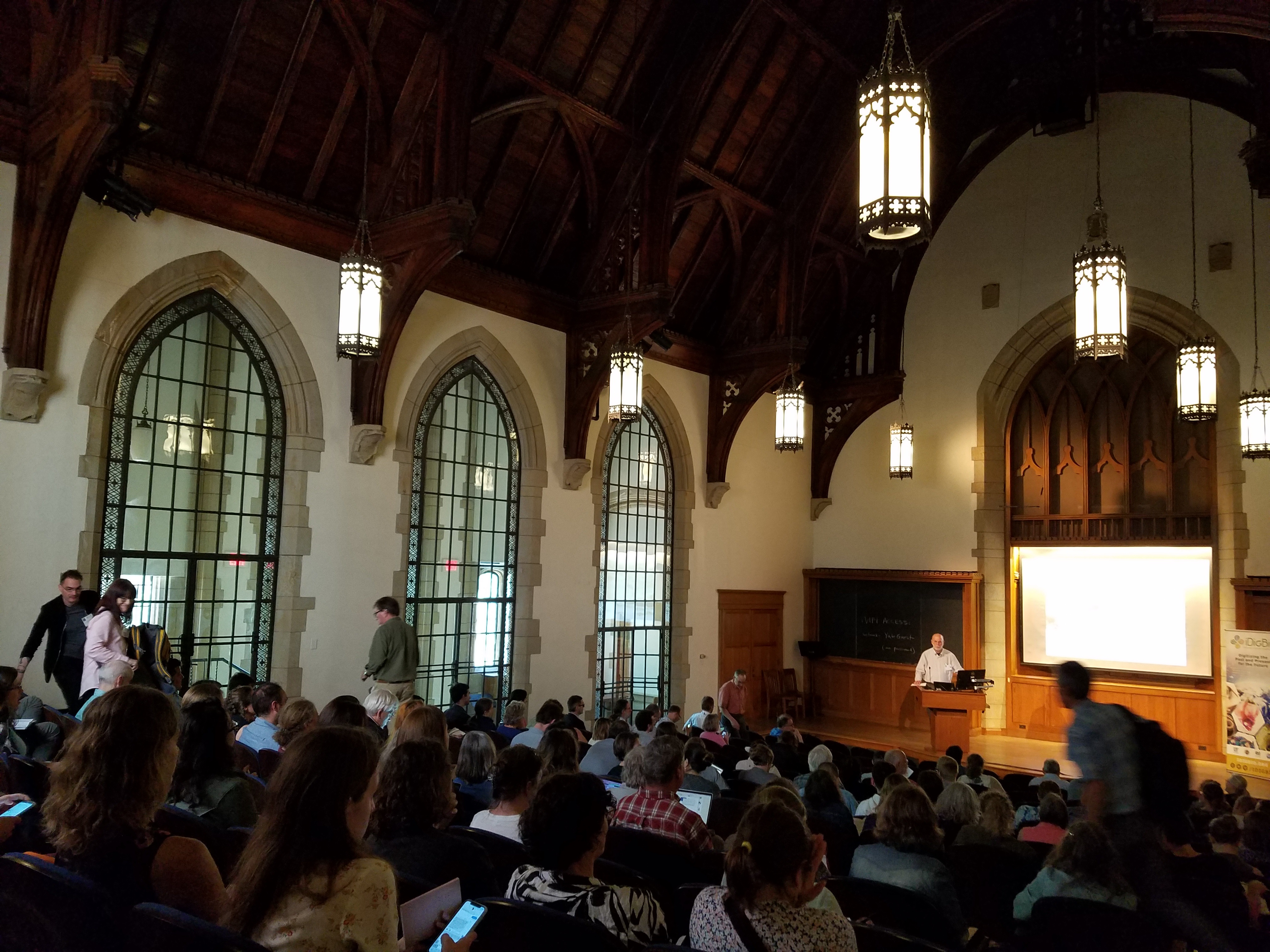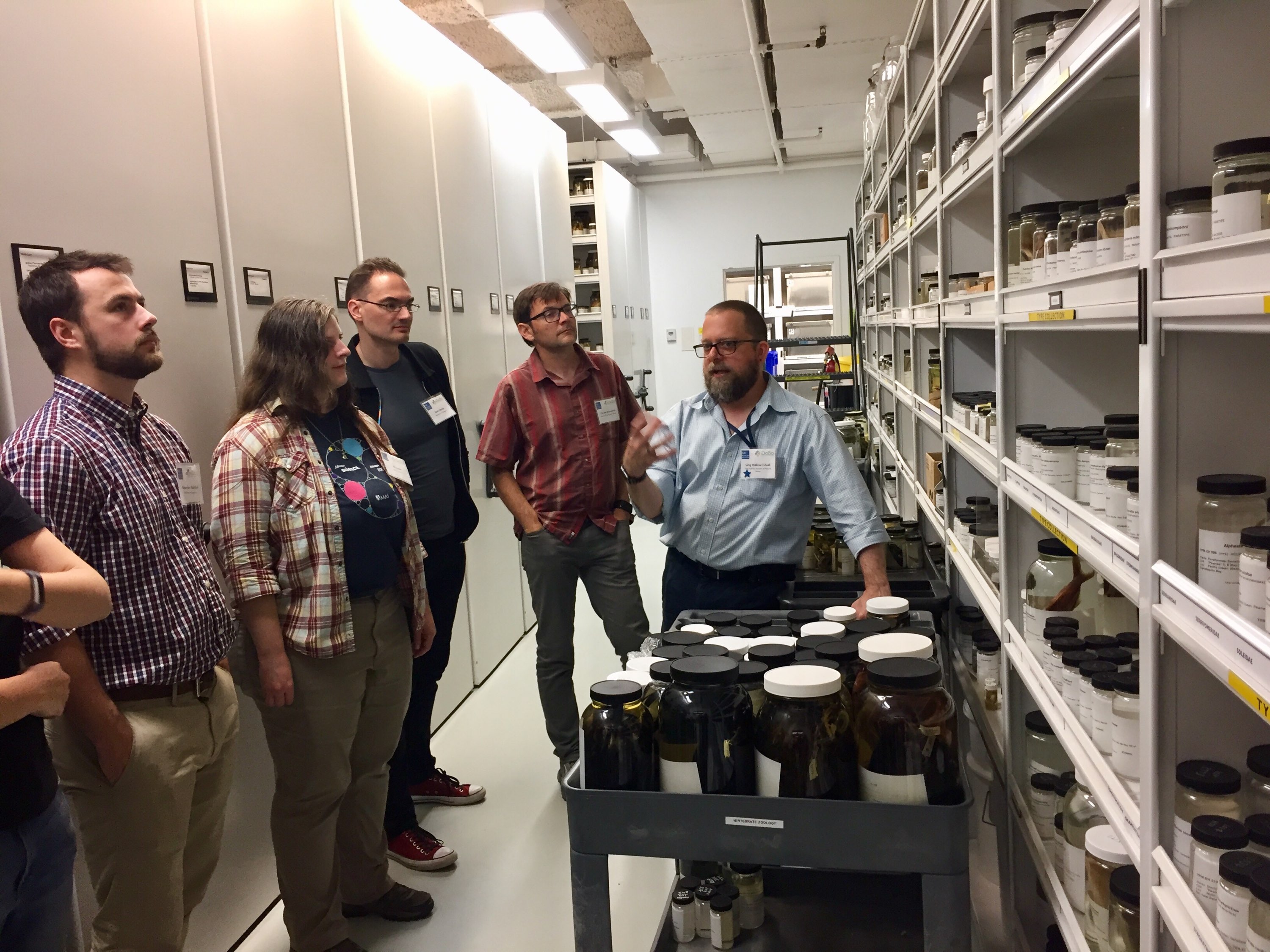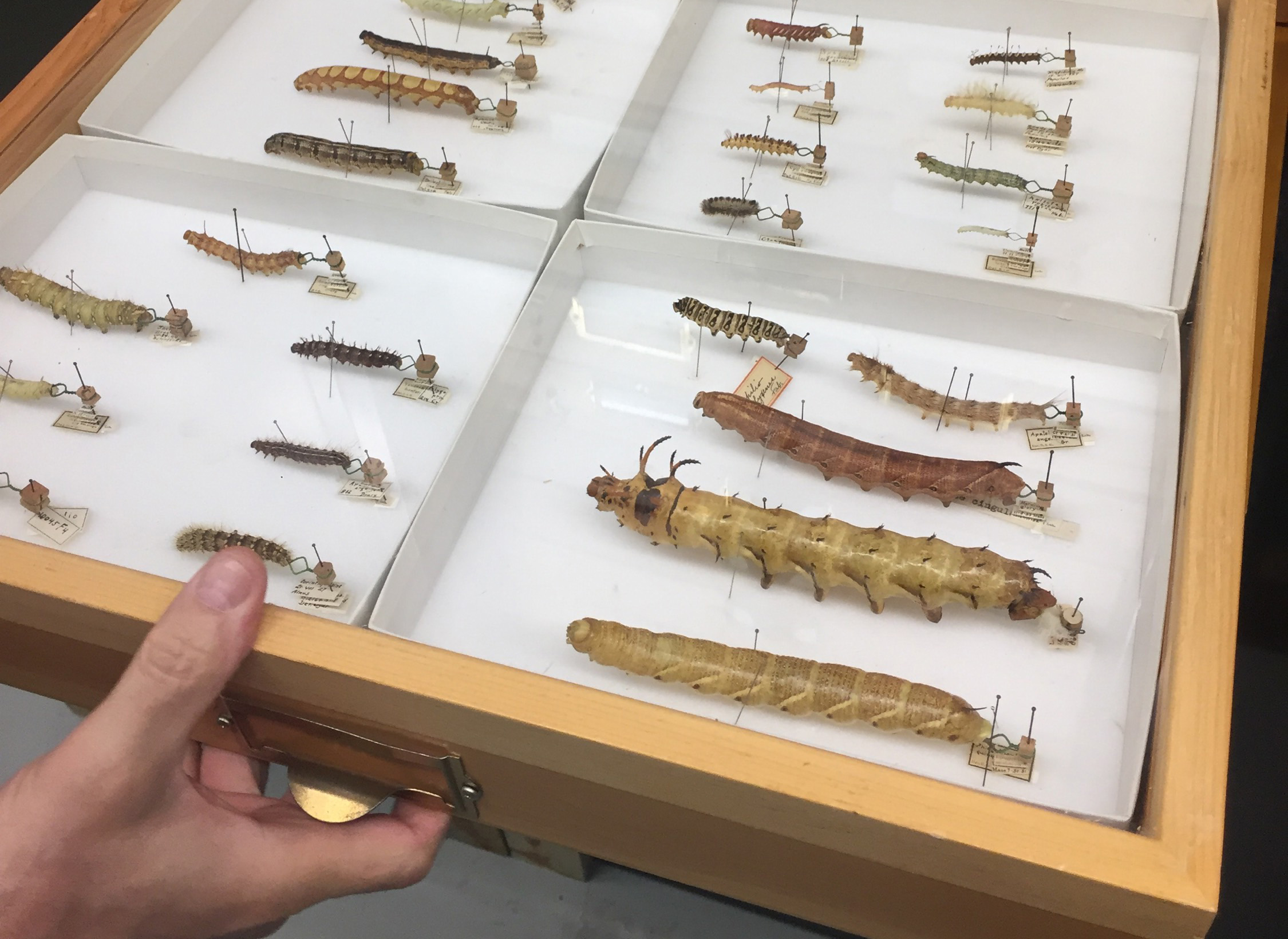

One hundred eighty five biodiversity and data scientists from 95 institutions representing 5 countries participated in the 3rd Annual Digital Data in Biodiversity Research Conference: Methods, Protocols, and Analytical Tools for Specimen-based Research in the Biological Sciences, 10-12 June 2019 at Yale University. Thirty-five students attended this year’s event comprising almost 20% of the attendees, an increase of 7% from last year’s student to non-student ratio. Hopefully the ratio will continue to increase in the future as the community grows and the population of students interested in biodiversity data research expands.
This year’s program featured eight engaging plenary sessions, 33 concurrent sessions, 7 discussion sessions and 25 posters.
Themes for oral presentations and posters included:
- published or publishable biodiversity research using digitized specimen data,
- methods and protocols for enhancing discovery with digitized specimen data,
- systematics and the use of digital specimen data,
- ongoing research projects that utilize digital data,
- gaps and deficiencies in currently available digital data that hinder effective use,
- user critiques of digital data quality, aggregators, and data providers,
- pipelines that integrate digitization, data use, and research,
- standards and practices for depositing and documenting open access digital datasets,
- the role and relevance of “Big Data” in biodiversity research,
- use of digitized biodiversity specimen data within ecological research and practice,
- conservation use of digital specimen data,
- the relative importance of vouchers vs. observations as digital research data,
- managing digital biodiversity specimen data in support of research pipelines,
- analyzing and visualizing specimen-based and related digital data.
Wednesday’s field trip and workshop day boasted the highest attendance than in years past. Wednesday’s happenings included The North American GBIF Nodes meeting, three field trips and three workshops including Mobilizing Museum Collections and Citizen Science Data to Predict Species Distribution, Basic Biodiversity Data Manipulation in R, and Tools and Best Practices for Biodiversity Data Science: A Data Carpentries Introduction with Python.
Abstracts for all sessions are available on the conference wiki.
iDigBio appreciates the opportunity to co-host the conference with our collaborators at Yale University and especially recognizes the Yale-based planning team: Patrick Sweeney, Larry Gall, Tim White, Greg Watkins-Colwell, Nelson Rios. Michael Donoghue, and Michelle Duong. We also appreciate the support of the Natural Sciences Collections Alliane (NSCA) Executive Director Rob Gropp and president, John Bates for assisting us with financial management strategies.
SAVE THE DATE: The 4th Annual Digital Data Conference will be held at Indiana University in Bloomington, IN, 1-3 June 2020.












